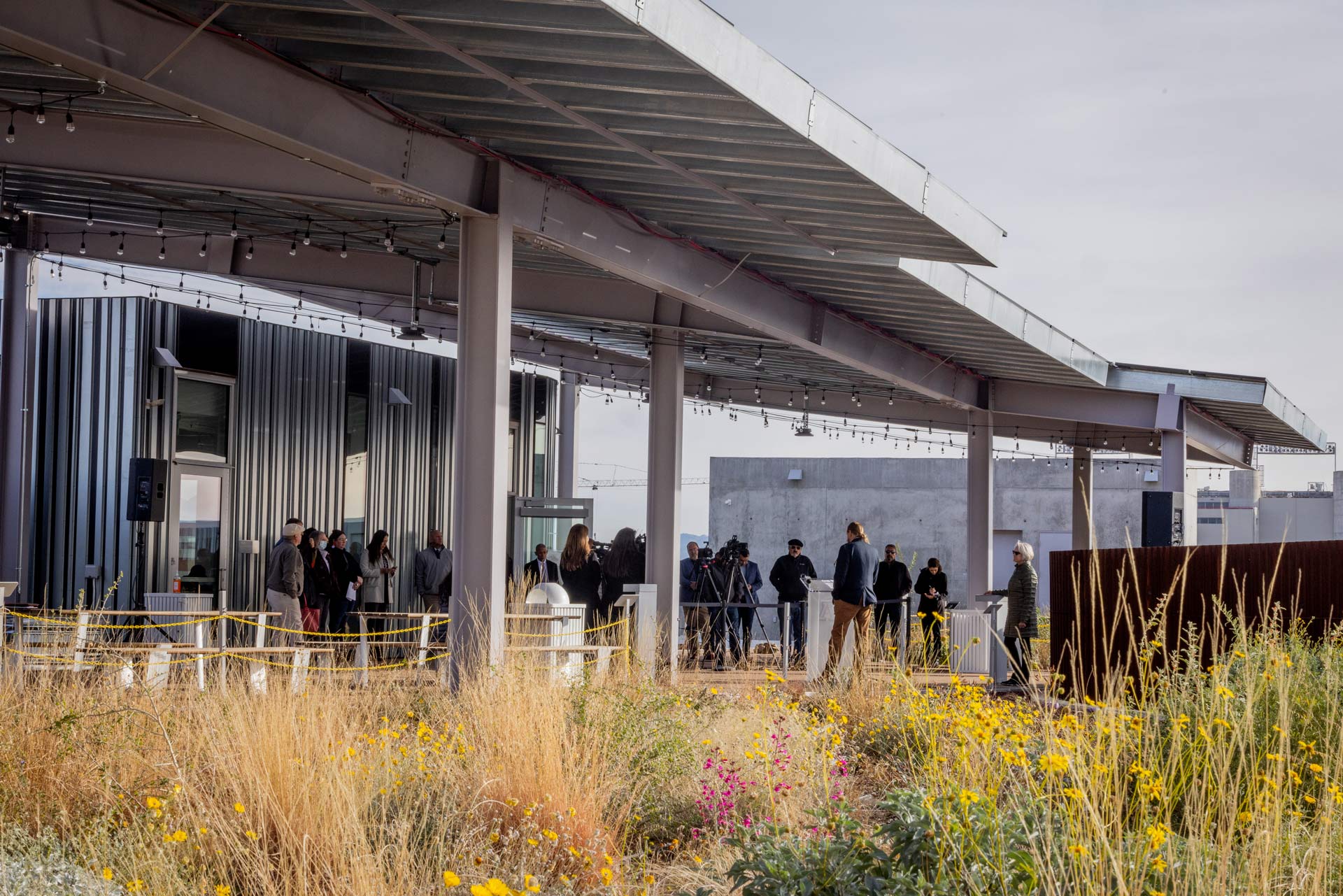 Tuesday’s press conference to announce the over $4.7 million USDA grant to UArizona to support and promote
'climate-smart' food production was held at the ENR2’s rooftop garden. The rooftop garden is an example of how native plants can be paired with solar panels to protect plants in an increasingly hot and dry climate while water evaporating from the plants cools and makes the panels more efficient.
Tuesday’s press conference to announce the over $4.7 million USDA grant to UArizona to support and promote
'climate-smart' food production was held at the ENR2’s rooftop garden. The rooftop garden is an example of how native plants can be paired with solar panels to protect plants in an increasingly hot and dry climate while water evaporating from the plants cools and makes the panels more efficient.
The U.S. Department of Agriculture awarded over $4.7 million to the Arizona Partnership for Climate-Smart Food Crops, a new collaboration between the University of Arizona, the University of Maryland, and three local nonprofits.
The three-year project will work towards connecting Arizona farmers with food production practices that help reduce water consumption and carbon emissions. Greg Barron-Gafford, the co-principal investigator on the grant, says that finding solutions under changing landscapes is at the top of mind.
“We need to address questions around which varieties of crops are most resilient to periods of temperature and drought stress… which ones can be thoughtfully produced in a way that can create a large enough market to actually meet a sustainable marketplace need for climate foods,” he said.
Experts say that food security is linked with water security, and Arizona uses the most water per acre, according to a 2018 Irrigation and Water Management Survey.
“We recognize the urgency and importance of helping Arizona farmers match climate-smart food production practices with arid-adapted food crops,” Betsey Cantrell, the UA Senior Vice President for Research and Innovation, said.
So, funding will help build systems like strip cropping, a practice of intermixing crops, to prevent soil erosion as well as utilize agrivoltaics, where solar panels are used to shade over crops to reduce evaporation.
The grant will also fund the promotion and marketing of farmers’ climate-smart products so that they may see greater profits with new practices.
“Small and underserved producers are most at risk,” Gloria Montaño Greene, the deputy undersecretary for farm production and conservation at the USDA, said. “Sometimes it's not called Climate Change. Some[times it’s] called the seasons and the rhythms aren't the same. The Disasters keep hitting…The drought or other extreme heat delay harvest or delay planting due to the weather extremities.”
The team will also lease commercial test kitchens to “identify culinary qualities of climate-smart crops, conduct consumer research, promote a desert seed-to-table program, and advance retail market development and a consumer awareness campaign.”

By submitting your comments, you hereby give AZPM the right to post your comments and potentially use them in any other form of media operated by this institution.